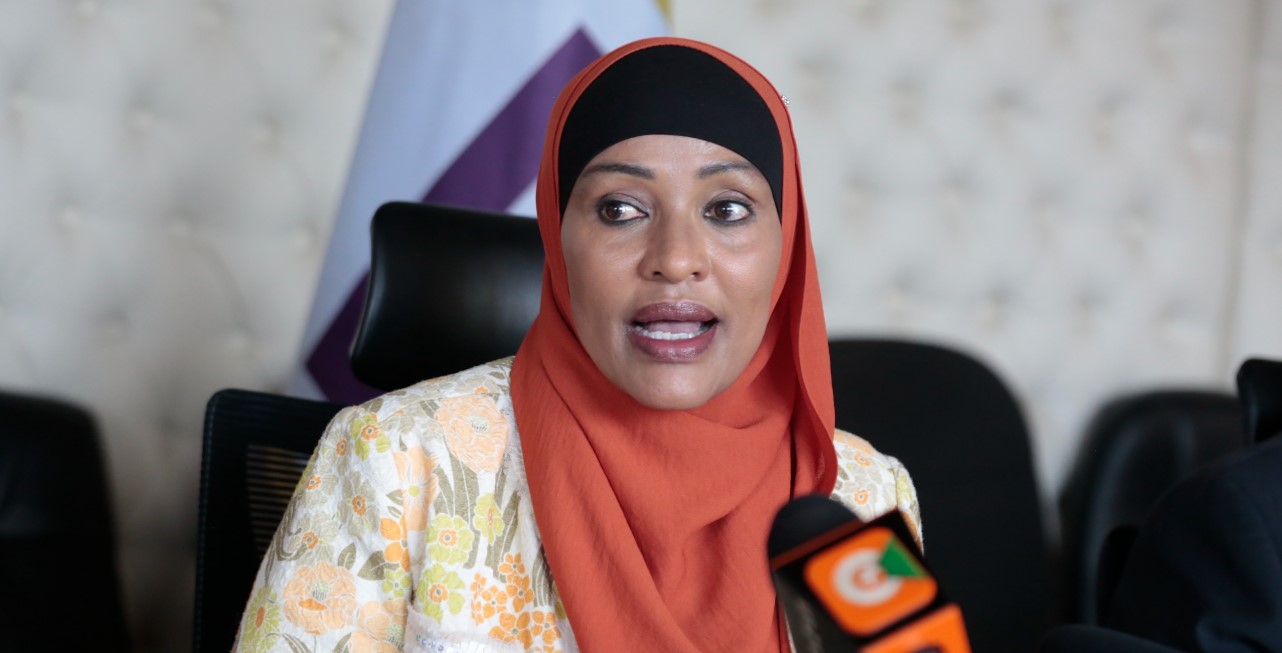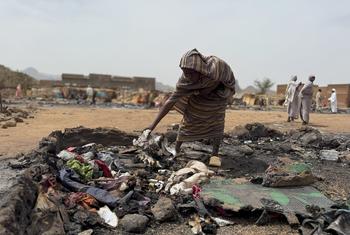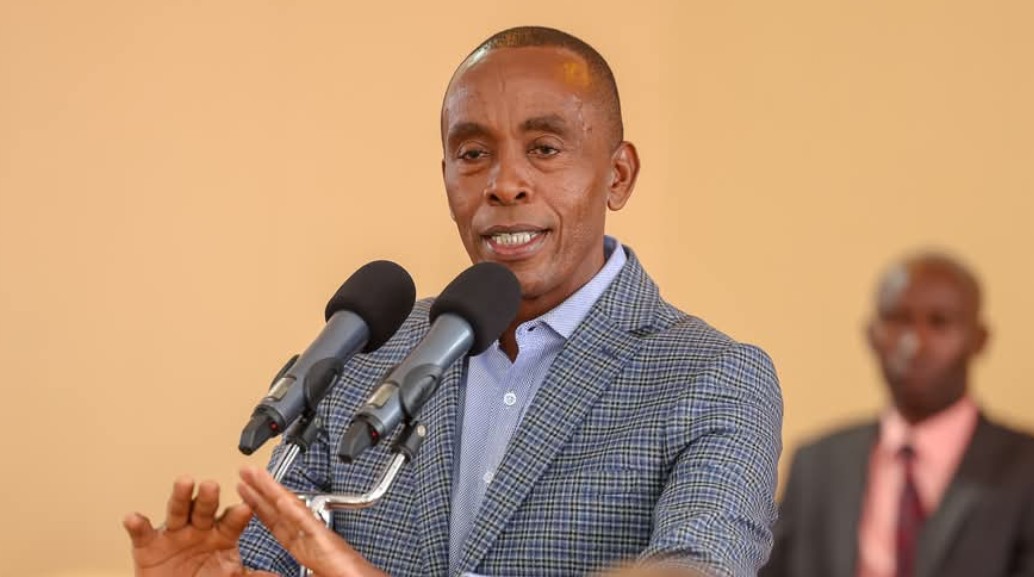Time running out for patients as doctors' strike persists
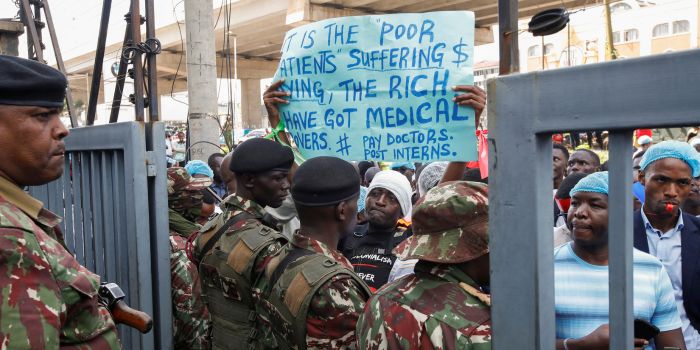
The healthcare system has long been overburdened and underfunded, but it has ground to a near halt after about 7,000 professionals walked off the job.
Desperate to have her five-month-old daughter treated for a skin infection, Celine Nyaga rode for an hour on the back of a motorcycle, cradling her baby in her arms.
The 23-year-old businesswoman had spent all morning scouting public hospitals to find a paediatrician for her daughter, Audrey, as a nationwide doctors' strike ran into a seventh week.
More To Read
- Court blocks Kiambu County from firing specialist doctors amid recruitment dispute
- Crisis looms as doctors issue 14-day strike notice over unpaid arrears
- Relief for patients as Kwale doctors return to work after striking deal with county government
- Why Kenyan doctors can’t afford the very services they offer - KMPDU Deputy SG Miskellah
- Nairobi County doctors end month-long strike after securing key demands
- Health CS Duale vows to ensure SHA settles hospital claims by the 14th of each month
The healthcare system has long been overburdened and underfunded, but it has ground to a near halt after about 7,000 members of the Kenya Medical Practitioners, Pharmacists and Dentists Union (KMPDU) walked off the job to demand better working terms.
"I am exhausted and am very worried," Nyaga told AFP as she arrived at Kiambu Level Five Hospital.
A vital safety net for poor Kenyans, the hospital was barely staying afloat with a weary skeleton crew caring for patients in the doctors' absence.
The usually packed hospital was virtually empty during a visit by AFP journalists, with a handful of patients sitting silently on wooden benches, too weak to chat.
The number of patients had dropped to about 30 per cent of the usual capacity, Kiambu County Health executive Elias Maina told AFP as he visited the facility.
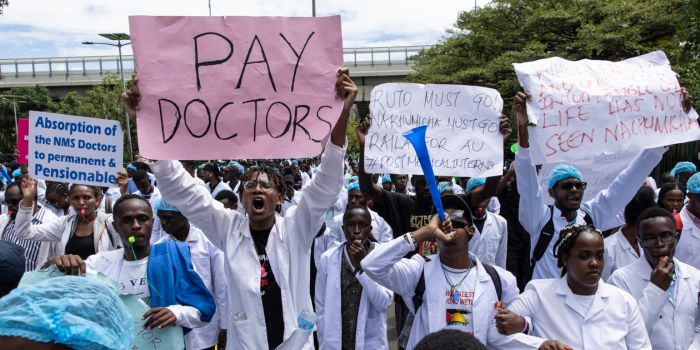 Kenyan doctors chant as they march towards the health ministry headquarters protesting with placards to demand better pay and working conditions in the capital, Nairobi on April 9, 2024. (Photo: Simon Maina/ AFP)
Kenyan doctors chant as they march towards the health ministry headquarters protesting with placards to demand better pay and working conditions in the capital, Nairobi on April 9, 2024. (Photo: Simon Maina/ AFP)
'I feel worried'
Many patients cannot afford treatment at relatively expensive private clinics and are sitting at home "not knowing what will happen next," Maina said.
"Even those who will survive through these periods, they'll come back to us when their condition has worsened, so we'd be in a worse off position."
Others were making rounds of every public hospital within reach, determined to get help.
A single mother of three, Faith Njeri, had already visited the Kiambu facility twice in search of a diagnosis and treatment for her one-year-old daughter, who was suffering from chest problems.
But she had not had any luck, she said.
"I didn't find any doctor there, so now I have to ask the pharmacy for some medicine or something," the 25-year-old hairdresser said, adding that she was "struggling" financially.
"I feel bad. I feel worried. Right now, it's very cold, it's raining and her condition may worsen".
Talks between the striking doctors and the government broke down this week despite a court deadline to reach an agreement, with each side blaming the other.
At the centre of the row is a standoff on the salaries of medical interns, who make up about 30 per cent of doctors, according to KMPDU.
On Tuesday, the cabinet said "it is unsustainable" to pay the interns a monthly stipend of Sh206,000 ($1,530) and instead offered $530.
The union has refused to cede ground on what it says is a "deal breaker".
"Let the government issue their threats and do their worst, then they will come back and talk," KMPDU Deputy Secretary-General Dennis Miskellah told AFP, referring to warnings that doctors would lose their jobs if they didn't call off the strike.
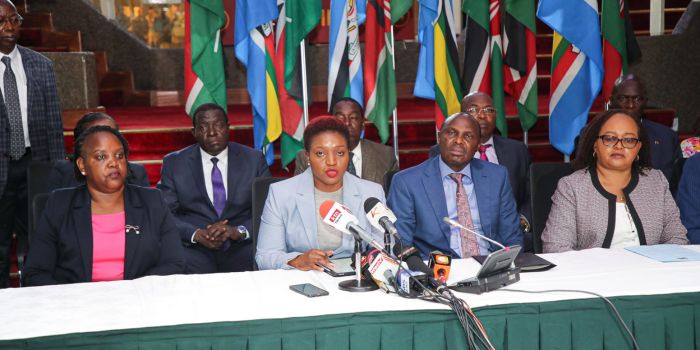 Health Cabinet Secretary Susan Nakhumicha addresses a press conference on the doctors' strike at the Kenyatta International Convention Centre (KICC) in Nairobi on April 23, 2024. (Photo: Barack Oduor)
Health Cabinet Secretary Susan Nakhumicha addresses a press conference on the doctors' strike at the Kenyatta International Convention Centre (KICC) in Nairobi on April 23, 2024. (Photo: Barack Oduor)
Expectant mothers
A prolonged strike could prove deadly, said Maina.
In 2017, doctors staged a 100-day nationwide strike and dozens of patients died from a lack of treatment during that walkout.
"This is my biggest worry," Maina said. "You can't put a price on the life of a human being, and (if) you lose one life, you will not recover it."
Some people have already turned to alternative medicine, including uncertified herbalists and faith healers, because they cannot afford anything else.
Hospital lobbies have, meanwhile, remained empty with Karura Health Centre, which handled between 60 and 80 patients each day, attending to less than 20 cases daily.
Lobby groups have voiced concern that expectant mothers were shouldering the biggest burden of the walkout.
Non-profit CFK Africa said its facility in Kibera, the largest urban slum in Kenya, had witnessed a 200 per cent increase in deliveries.
"While our maternity facility staff are seeing as many patients as possible, they have had difficulties when referring cases for emergency obstetrics that require specialised care, such as breech births," said Executive Director Jeffrey Okoro.
The Federation of Women Lawyers in Kenya (FIDA) said Wednesday it was considering taking legal action against those who had failed to resolve the issue. But for those needing care, time is running out.
"The people we expect to resolve this strike can fly out of the country for treatment; only the poor will suffer," said Nyaga.
Top Stories Today
